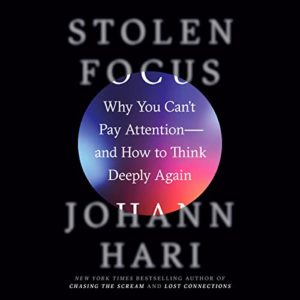
It’s been a long time coming.
And now it seems to me we can’t ignore our situation any longer.
It may have begun in 1989 with the introduction of Game Boy, which for those of you who don’t know, was played on a handheld device that required only the use of thumbs.
By 1993 I had preschool students, mostly boys, that had difficulty holding a fork or spoon, preferring to eat with their hands. This lack of dexterity followed them into their elementary years, and they struggled with holding a pencil, writing, as well as manipulating some of the smaller Montessori materials such as bead bars.
Parents reported that many of their sons were electing to stay inside and not play with the neighborhood children. They wanted to play with their Game Boy, Nintendo or PacMan.
It took me years to understand how playing electronic games affected our children’s development.
Instead of doing what primary and elementary aged children did for generations—play outside, build, read, draw, help with chores— a cohort of children focused on electronic games. And things continued to change.
In 2004 Richard Louv in his book, Last Child In The Woods, offered the phrase, nature deficit disorder. His book chronicled how children were choosing to play electronic games instead of playing creatively outdoors.
In 2007 along comes the iphone with no one having an inkling of the unintended consequences facing us in less than fifteen years.
Johann Hari in his book, Stolen Focus: Why You Can’t Pay Attention—and How to Think Deeply Again, reports that the average American spends 3 hours and 15 minutes per day on their phone. (Page 20) We touch our phones 2,617 times every twenty-four hours. We are constantly being interrupted by our phones and computers so that most office workers are on task for less than four minutes before being interrupted by an electronic ding. For college students that time drops to less than two minutes.
Hari offers fourteen causes of how our focus has been slowly stolen from us, and gives us a chapter for each of those causes. At the end he offers us ways that we can work to get our focus back.
Hari begins by busting the myth of “multi-tasking”. We may think we are juggling our many efforts successfully, but the research shows that we are not.
To learn the importance of developing concentration and being in “flow”, Hari interviews Mihaly Csikszentmihalyi, the late psychologist who named this concept of a highly focused mental state. What comes out of their discussion, for me, is a concise explanation of the benefits of tapping into an uninterrupted three-hour work cycle—deep learning, satisfaction, ability to make personally affirming choices—some of the many gifts we offer our children in a well-run Montessori setting.
Another cause: Since 2007 we are not sleeping enough and our physical and mental exhaustion makes it difficult to reclaim our stolen focus.
Many of us have lost the ability to read at length. We are reading many more words per day than ever before, but articles are short and not leading us to form coherent ideas, discussions, and conclusions as in the case of a book. Our stolen focus keeps us from thinking deeply about ideas and issues.
The inability to think deeply leads to another cause of stolen focus, the disruption of mind wandering. Being able to let our mind wander, watching clouds as I like to say, allows us to put together many ideas, to be creative, to find novel solutions to problems, as well as to define larger problems.
If being interrupted by incessant electronic messages isn’t enough, our focus is being stolen by technology companies that can track and manipulate us in such subtle ways that we don’t realize what is happening.
When we try to break free of our technology addiction, we face “cruel optimism”. Want to free yourself from the demands of electronic technology? The advice to simply get off of social media or limit phone time makes folks feel like all they need is a bit of self-discipline and persistence. Anybody can do it, they tell you.
But there are underlying psychological undercurrents at play that sabotage those efforts. When tech addicts return to their old habits, they report feeling like failures. The cruel optimism says that anybody can liberate themselves from the addiction of electronic media, when in fact the tracking and manipulation of personal information gathered by tech companies makes it almost impossible. A set of psychological skills is necessary for success.
Hari addresses the issues of diet, pollution, rising rates of ADHD and the physical and psychological constraints our children suffer in the name of safety. All additional causes of our stolen focus.
For me it is all about the children.
We as adults are supposed to prepare an environment for children to grow and flourish.
Today our children are forced into environments where their natural development of concentration and independence is being devastated.
We need to do something different, soon, very soon.
Our children need us more than ever to create a place where they can thrive.
That place is our beautiful planet, Earth, and she needs our help.
We can start, one family, one classroom, one school, one business, one neighborhood at a time.
Read Stolen Focus, and let’s learn to take back our focus, attention and concentration.
